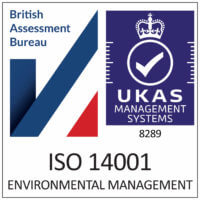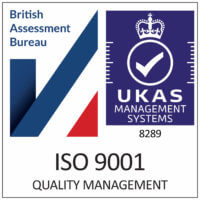The Impact of Peat-Free All-Purpose Compost on Soil Microbial Activity
Oct 18th 2023
Imagine a world where gardening not only helps beautify our surroundings but also contributes to the health of our planet. Well, thanks to advancements in horticulture, we now have peat-free all-purpose compost that aims to do just that. In this article, we will explore the impact of this innovative compost on soil microbial activity. Get ready to uncover the fascinating role this compost plays in promoting a thriving and sustainable ecosystem in your very own garden.
Understanding Peat-Free All-Purpose Compost
Composition and Characteristics of Peat-Free All-Purpose Compost
Peat-free all-purpose compost is a versatile and sustainable alternative to traditional peat-based composts. It is composed of a mixture of organic materials. This combination provides essential nutrients and organic matter necessary for healthy plant growth. Peat-free compost is carefully formulated to provide a balanced ratio of macro and micronutrients, ensuring optimal plant nutrition.
One of the key characteristics of peat-free all-purpose compost is its environmentally friendly nature. Traditional peat-based composts are often harvested from fragile and important ecosystems, such as peatlands, resulting in the destruction of these vital habitats. Additionally, peat extraction releases large amounts of carbon dioxide into the atmosphere, contributing to global warming. By using peat-free compost, you are actively reducing your carbon footprint and protecting valuable ecosystems.
Importance of Peat-Free All-Purpose Compost
The use of peat-free all-purpose compost is not only beneficial for the environment but also has numerous advantages for soil health and plant growth. This compost is rich in organic matter, which improves soil structure, promotes water retention, and enhances nutrient cycling. By incorporating peat-free compost into your garden or agricultural practices, you are fostering a more sustainable and resilient ecosystem.
Overview of Soil Microbial Activity
Definition and Importance of Soil Microbial Activity
Soil microbial activity refers to the numerous biochemical processes carried out by microorganisms living within the soil. These microorganisms, including bacteria, fungi, and archaea, play a crucial role in nutrient cycling, organic matter decomposition, and disease suppression. They transform organic matter into essential nutrients that are readily available for plant uptake, enhance soil aggregation and structure, and contribute to overall soil fertility. Understanding and promoting soil microbial activity can significantly improve soil health and plant productivity.
Factors Influencing Soil Microbial Activity
Several factors influence soil microbial activity. Environmental conditions, such as temperature, moisture, and pH, can profoundly affect the composition and activity of soil microbial communities. Microorganisms have specific environmental requirements, and variations in these conditions can either promote or inhibit their activity. Other factors, including soil management practices, nutrient availability, and the presence of organic matter, also influence soil microbial communities. By maintaining optimal conditions and providing a favorable environment, you can support and enhance soil microbial activity.
Chemical and Physical Properties of Peat-Free All-Purpose Compost
Effect of Peat-Free All-Purpose Compost on pH of Soil
Peat-free all-purpose compost can have a significant impact on the pH of the soil. The pH level refers to the acidity or alkalinity of the soil, and it plays a crucial role in nutrient availability and microbial activity. Peat-free compost is typically neutral to slightly acidic, which is beneficial for most plants as it allows for optimal nutrient uptake. Additionally, acidic compost can help neutralize alkaline soils, making them more suitable for a wider range of plants. The balanced pH provided by peat-free compost ensures a healthy growing environment for your plants.
Impact of Peat-Free All-Purpose Compost on Soil Texture
Peat-free all-purpose compost can also influence the texture of the soil. The texture refers to the relative proportions of sand, silt, and clay particles present in the soil. These particles determine properties such as water-holding capacity, drainage, and aeration. Peat-free compost, with its fibrous and organic nature, improves soil structure, increasing porosity and creating pathways for root growth. It enhances soil aggregation, preventing compaction and improving water infiltration. These improvements in soil texture contribute to healthier and more productive plants.
Effects of Peat-Free All-Purpose Compost on Soil Microbial Biomass
Increase in Soil Microbial Biomass
The use of peat-free all-purpose compost can lead to a significant increase in soil microbial biomass. Microorganisms thrive in organic-rich environments, and the addition of compost provides a source of food for these microorganisms. As a result, the population and diversity of soil microorganisms multiply, leading to an increase in microbial biomass. This increase in microbial biomass has numerous benefits for the soil ecosystem, including improved nutrient cycling, enhanced disease suppression, and better soil structure.
Understanding Microbial Diversity and Community Structure with Peat-Free All-Purpose Compost
Peat-free all-purpose compost promotes microbial diversity and influences the community structure within the soil. Microbial diversity refers to the variety of different microorganisms present, while community structure pertains to their composition and interactions. The addition of peat-free compost introduces a diverse range of organic materials, providing a rich food source for various microorganisms. This diverse food supply supports the growth of different microbial species, leading to a more balanced and robust microbial community. A diverse microbial community is key to soil health and resilience, as it enhances nutrient cycling and disease suppression.
Alterations in Soil Enzyme Activities
The application of peat-free all-purpose compost can significantly impact soil enzyme activities. Enzymes are proteins produced by microorganisms that catalyze various biochemical reactions in the soil. These reactions are essential for nutrient transformation, organic matter decomposition, and disease suppression. Peat-free compost serves as a substrate for microbial enzyme production, leading to an increase in enzyme activities. This increase enhances nutrient availability, improves soil organic matter decomposition, and strengthens the overall health of the soil ecosystem.
Role of Peat-Free All-Purpose Compost in Nutrient Cycling
Enhancement of Nutrient Availability and Uptake
Peat-free all-purpose compost plays a crucial role in nutrient cycling, enhancing both nutrient availability and uptake by plants. Compost contains a diverse range of organic materials and microorganisms that break down complex organic matter into simpler forms. This decomposition process releases essential nutrients, converting them into forms that plants can readily absorb. The incorporation of peat-free compost into the soil ensures that nutrients are recycled and made accessible for plant uptake, promoting healthy growth and optimizing nutrient utilization.
Influence on Soil Organic Matter Decomposition
Peat-free all-purpose compost accelerates the decomposition of soil organic matter, aiding in the release of nutrients. However, the breakdown of organic matter is a slow process. Peat-free compost contains microorganisms that actively break down organic matter, speeding up decomposition and releasing nutrients into the soil. This increased decomposition rates ensure that nutrients are constantly replenished, maintaining soil fertility and supporting plant growth.
Implications for Carbon Sequestration
Peat-free all-purpose compost plays a significant role in carbon sequestration, actively contributing to mitigating climate change. Carbon sequestration refers to the capture and storage of carbon dioxide from the atmosphere. Traditional peat-based composts release large amounts of carbon dioxide during the extraction process. In contrast, peat-free compost utilizes organic materials that have captured and stored carbon dioxide through photosynthesis. By using peat-free compost, you are promoting the sequestration of carbon, reducing greenhouse gas emissions, and combating climate change.
Influence of Peat-Free All-Purpose Compost on Plant Growth and Health
Promotion of Root Development and Health
Peat-free all-purpose compost promotes root development and overall plant health. The improved soil structure provided by the compost enables better root penetration and exploration. The fibrous nature of peat-free compost allows for increased water and nutrient absorption by the roots, supporting vigorous growth and strong root systems. Additionally, the presence of beneficial microorganisms in the compost enhances root-microbe interactions, fostering symbiotic relationships that contribute to plant health and nutrient uptake.
Improvement of Soil Water Holding Capacity
Peat-free all-purpose compost enhances the water-holding capacity of the soil, promoting optimal moisture levels for plant growth. The organic matter in the compost acts as a sponge, absorbing and retaining water, preventing excessive runoff, and reducing the risk of drought stress. The improved water-holding capacity ensures that plants have a consistent supply of moisture, even during dry periods, facilitating nutrient uptake and maintaining healthy growth.
Protection against Soil-Born Diseases
Peat-free all-purpose compost can provide protection against soil-born diseases, creating a healthier growing environment for plants. The compost contains microorganisms, such as bacteria and fungi, that have the ability to suppress harmful pathogens. These beneficial microorganisms compete with and inhibit the growth of disease-causing organisms, reducing the risk of plant infections. Incorporating peat-free compost into your soil improves disease resistance and can help create a more resilient and disease-free garden or agricultural system.
Effects of Peat-Free All-Purpose Compost on Soil Structure and Aggregation
Improvement in Soil Porosity and Aeration
Peat-free all-purpose compost improves soil porosity and enhances aeration, creating a favorable environment for plant roots and soil microorganisms. Soil porosity refers to the arrangement and proportion of soil particles and voids. Compost, with its fibrous and organic nature, helps create larger pore spaces in the soil, increasing its porosity. These larger pore spaces allow for improved air circulation and oxygen availability, facilitating root respiration and promoting the growth of aerobic microorganisms. Enhanced soil porosity contributes to better plant growth and overall soil health.
Enhanced Soil Aggregation and Stability
Peat-free all-purpose compost enhances soil aggregation and stability, improving the structural integrity of the soil. Soil aggregates are clusters of soil particles that bind together, creating larger and more stable soil structures. The organic matter in peat-free compost acts as a binding agent, helping to form and stabilize soil aggregates. These aggregates improve soil stability, preventing erosion and compaction, and creating a favorable environment for soil microorganisms. Enhanced soil aggregation leads to increased water infiltration, nutrient availability, and root penetration, benefiting plant growth and soil health.
Impact of Peat-Free All-Purpose Compost on Soil pH and Nutrient Availability
Alkaline or Acidic Effects on Soil pH
The use of peat-free all-purpose compost can have both alkaline and acidic effects on soil pH, depending on the initial pH of the soil and the composition of the compost. Peat-free compost is typically neutral to slightly acidic, which can help neutralize alkaline soils, making them more suitable for a wider range of plants. However, if the soil is already acidic, the addition of acidic compost can further lower the pH. Therefore, it is important to consider the existing pH of the soil and select the appropriate compost to maintain optimal pH levels for your specific plants.
Availability of Essential Nutrients for Plant Uptake
Peat-free all-purpose compost influences the availability of essential nutrients for plant uptake. As the compost decomposes, it releases nutrients into the soil, making them available for plants to absorb. The organic matter in the compost also acts as a reservoir for nutrient retention, preventing leaching and ensuring a steady supply of nutrients. Additionally, microbial activity in the compost enhances nutrient transformation, converting complex forms of nutrients into simpler forms that plants can readily utilize. The use of peat-free compost ensures a consistent and balanced nutrient supply, supporting healthy plant growth.
Effects of Peat-Free All-Purpose Compost on Soil Microbial Functions
Promotion of Nutrient Cycling and Availability
Peat-free all-purpose compost promotes nutrient cycling and availability through its impact on soil microbial functions. Compost provides a diverse range of organic materials that act as a food source for microorganisms. These microorganisms break down complex organic matter, releasing essential nutrients into the soil. Furthermore, the microbial activities facilitated by compost enhance nutrient transformations, making them more accessible to plants. By stimulating microbial functions, peat-free compost ensures efficient nutrient cycling, promoting healthy plant growth and reducing the need for additional fertilizers.
Symbiotic and Mycorrhizal Associations
Peat-free all-purpose compost can support symbiotic and mycorrhizal associations in the soil. Symbiotic associations refer to mutually beneficial relationships between plants and microorganisms, where both parties derive benefits. Peat-free compost introduces beneficial microorganisms to the soil, creating opportunities for symbiotic associations. For example, nitrogen-fixing bacteria can form associations with leguminous plants, supplying them with nitrogen. Mycorrhizal associations involve the colonization of plant roots by beneficial fungi, which facilitate nutrient uptake and enhance plant growth. The incorporation of peat-free compost can foster these beneficial associations, further promoting plant health and nutrient acquisition.
Biocontrol of Plant Pathogens
Peat-free all-purpose compost can aid in the biocontrol of plant pathogens, offering natural protection against diseases. The compost contains microorganisms that have the ability to inhibit the growth and activity of harmful pathogens. These beneficial microorganisms compete for resources and produce compounds that suppress the growth of plant pathogens, reducing the risk of infection. Incorporating peat-free compost into the soil provides a natural defense mechanism, enhancing disease resistance and contributing to a more resilient and healthy plant ecosystem.
Long-Term Effects of Peat-Free All-Purpose Compost on Ecosystem Services
Longevity of Soil Improvements with Peat-Free All-Purpose Compost
The use of peat-free all-purpose compost can have long-lasting effects on soil improvements. Organic matter provided by the compost accumulates in the soil and contributes to the formation of stable aggregates. These aggregates improve soil structure and stability, providing long-term benefits for plant growth and overall soil health. Additionally, the microbial populations established through the use of compost can persist and continue to promote nutrient cycling and disease suppression over time. By incorporating peat-free compost into your soil management practices, you are investing in the long-term health and productivity of your garden or agricultural system.
Impacts on Soil Fertility and Sustainable Agriculture
Peat-free all-purpose compost has significant impacts on soil fertility and supports sustainable agriculture. The compost improves soil structure, porosity, and nutrient availability, creating an optimal growing environment for plants. By enhancing soil fertility, peat-free compost reduces the reliance on synthetic fertilizers, minimizing the environmental impact and potential pollution associated with their use. It also promotes sustainable agriculture by maintaining soil health, increasing crop yields, and supporting ecosystem services such as nutrient cycling and disease suppression. The adoption of peat-free all-purpose compost is a sustainable and environmentally friendly approach to agricultural practices.
In conclusion, peat-free all-purpose compost offers numerous benefits for soil health, plant growth, and sustainable agricultural practices. Its composition and characteristics provide essential nutrients, improve soil structure, and foster beneficial soil microbial activity. By using peat-free all-purpose compost, you contribute to the preservation of valuable ecosystems, reduce carbon emissions, and support a more sustainable and resilient garden or agricultural system. Make the switch to peat-free compost and discover the positive impact it can have on your soil and plants.






